Iti Chaturvedi
Augmenting End-to-End Dialog Systems with Commonsense Knowledge
Feb 12, 2018

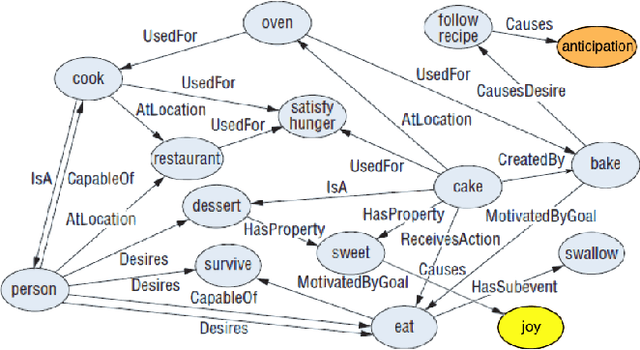
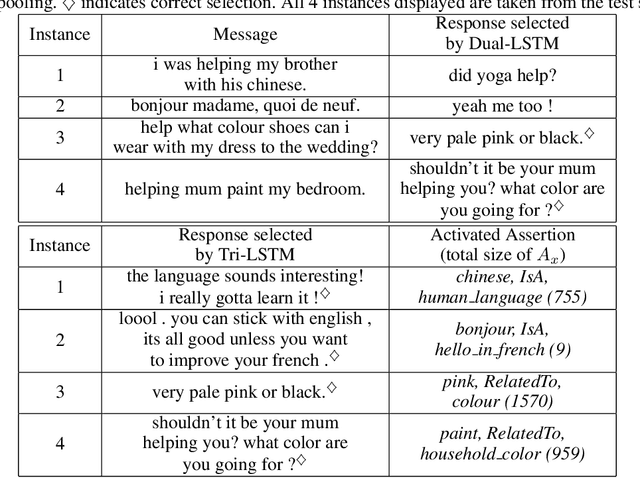
Abstract:Building dialog agents that can converse naturally with humans is a challenging yet intriguing problem of artificial intelligence. In open-domain human-computer conversation, where the conversational agent is expected to respond to human responses in an interesting and engaging way, commonsense knowledge has to be integrated into the model effectively. In this paper, we investigate the impact of providing commonsense knowledge about the concepts covered in the dialog. Our model represents the first attempt to integrating a large commonsense knowledge base into end-to-end conversational models. In the retrieval-based scenario, we propose the Tri-LSTM model to jointly take into account message and commonsense for selecting an appropriate response. Our experiments suggest that the knowledge-augmented models are superior to their knowledge-free counterparts in automatic evaluation.
Basic tasks of sentiment analysis
Oct 18, 2017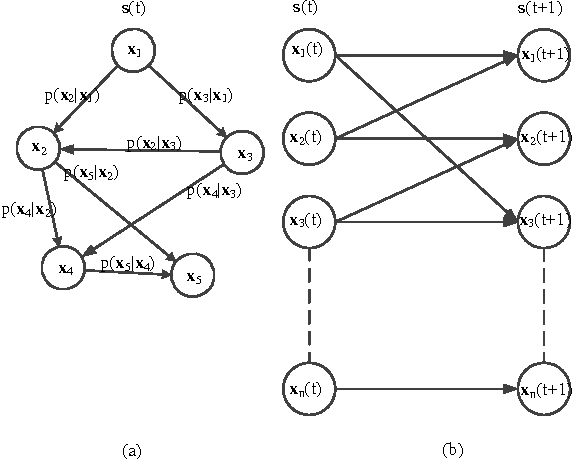
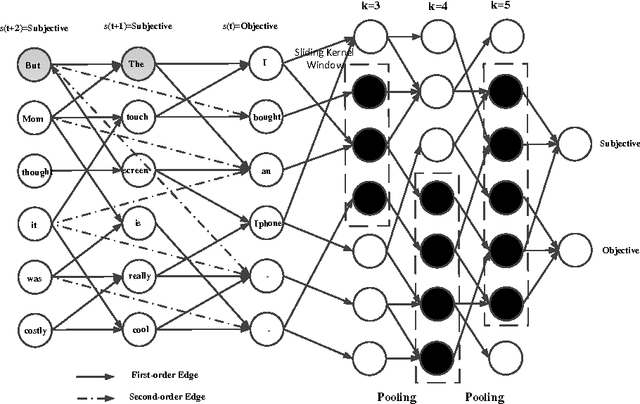
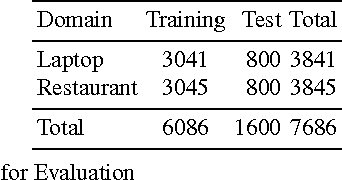

Abstract:Subjectivity detection is the task of identifying objective and subjective sentences. Objective sentences are those which do not exhibit any sentiment. So, it is desired for a sentiment analysis engine to find and separate the objective sentences for further analysis, e.g., polarity detection. In subjective sentences, opinions can often be expressed on one or multiple topics. Aspect extraction is a subtask of sentiment analysis that consists in identifying opinion targets in opinionated text, i.e., in detecting the specific aspects of a product or service the opinion holder is either praising or complaining about.
 Add to Chrome
Add to Chrome Add to Firefox
Add to Firefox Add to Edge
Add to Edge